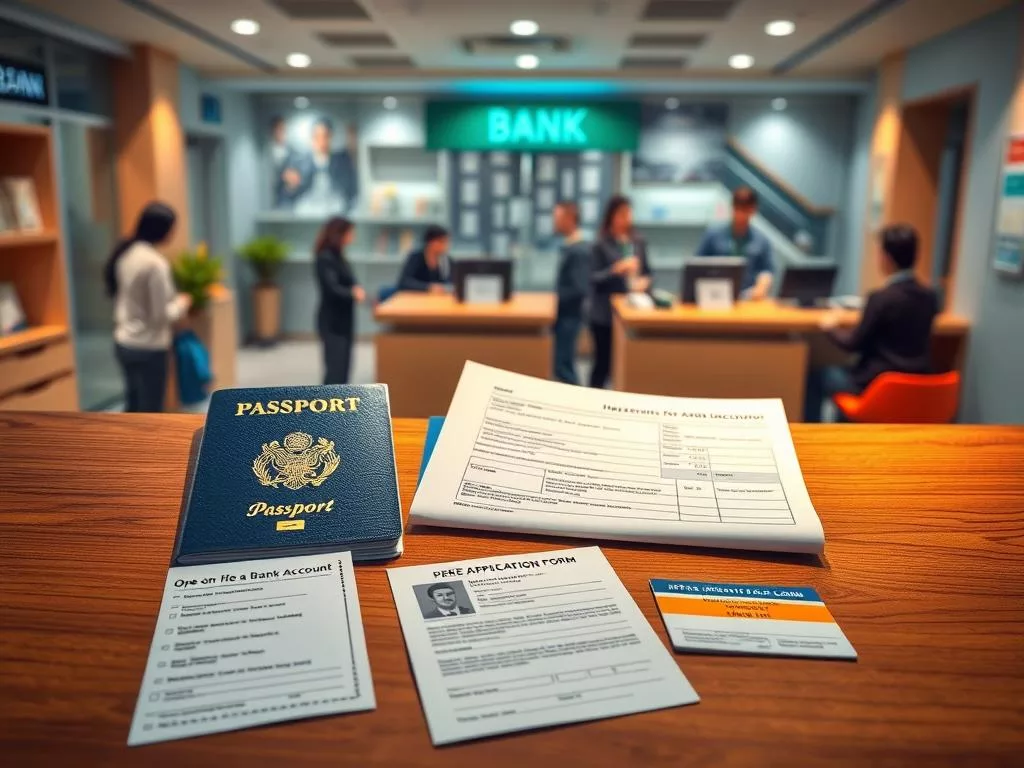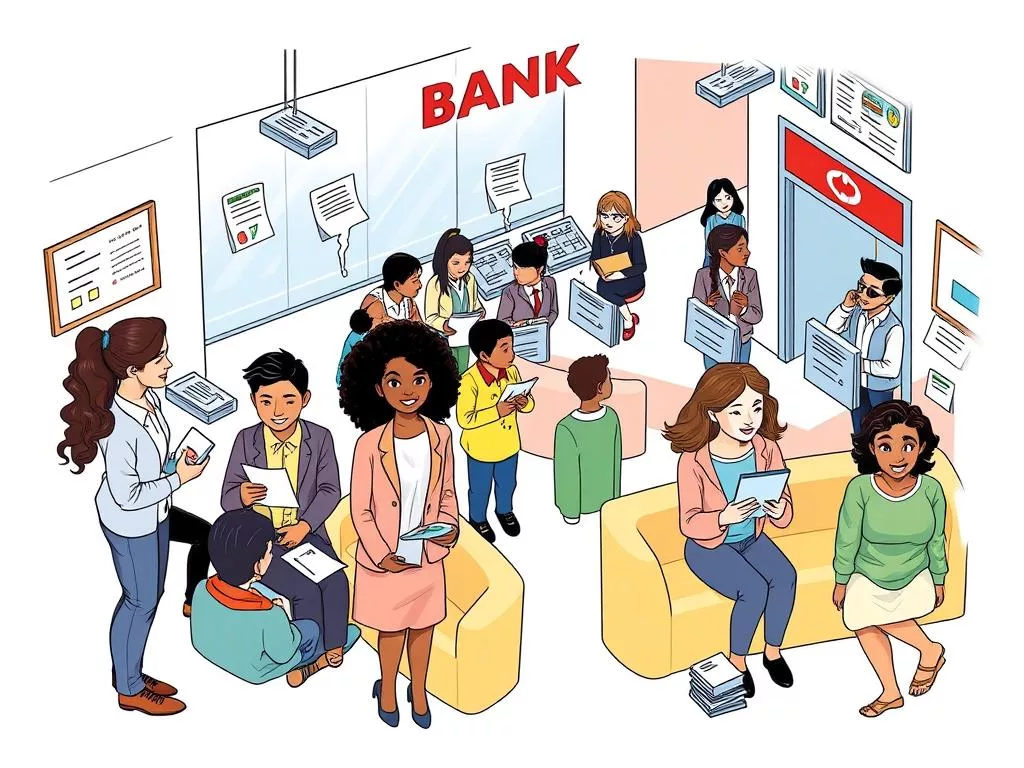Opening a bank account in the United States without a Social Security Number (SSN) is possible. It’s also accessible for many, like undocumented people, non-residents, and international students. This guide to opening a bank account shows how to do it well. Many banks accept passports, government-issued driver’s licenses, or consular IDs as ID.
About 40% of immigrants can open a bank account without an SSN. They use other valid documents. Knowing what’s needed and which banks are flexible can make banking easier. This article will help you open a bank account in the US. It ensures everyone can access important financial services.
Understanding the Requirements for Opening a US Bank Account
Opening a US bank account as a non-resident needs careful attention to personal documentation. Banks must collect your full name and date of birth, as the law requires.
For opening a bank account, you need to show identification. You can use a valid passport, driver’s license, consular ID, or birth certificate. You also need to prove where you live. This can be done with utility bills, leases, or a driver’s license with your address.
When opening an account, identification numbers are key. While many banks ask for a Social Security Number (SSN), others accept an Individual Taxpayer Identification Number (ITIN) and alien IDs. An ITIN makes opening an account easier for non-residents, acting as a unique taxpayer ID.
It’s important to know the different types of bank accounts in the US. These include checking, savings, CDs, money market accounts, and business accounts. Banks like HSBC and Citibank are known for welcoming non-residents.
Many banks offer online account management for easy access to banking services. Online platforms like Wise and Revolut are great for non-residents, with low fees and flexible options. Traditional banks are better for those who need face-to-face service and specialized financial help.
| Document Type | Usage |
|---|---|
| Valid Passport | Identification and nationality verification |
| Proof of US Address | Required to establish residency |
| ITIN or SSN | Facilitates account verification |
| Visa or Immigration Documents | Confirms legal status in the US |
| Employer Identification Number (EIN) | Necessary for business accounts |

Guide to Open a US Bank Account Without SSN
Opening a bank account without a Social Security Number can be tough but doable, mainly for non-residents. First, you need an ITIN, which is a substitute for those without a Social Security Number. To get an ITIN, you must fill out the W-7 form and show important documents like a valid passport or a foreign tax return.
After getting your ITIN, you need to find banks that accept it and other required documents. Big banks like Chase Bank, Bank of America, and Citibank often help non-residents open accounts. They usually ask for proof of US residency, like a utility bill, and a minimum deposit.
It’s important to know that each bank has its own set of rules. Some might ask for extra documents to meet rules on knowing your customers and preventing money laundering. Checking what you need for an ITIN, proof of US address, minimum deposit, and where your money comes from is wise before applying.
Online banking is also an option for those facing the challenge of opening a US bank account without a Social Security Number. Wise, for example, offers borderless banking. It lets people from over 50 countries open US accounts and manage different currencies easily. This is great for freelancers and digital nomads.
Here’s a table comparing online banking services that might not need an SSN or ITIN:
| Bank Name | Monthly Fee | Foreign Transaction Fees | Required Documentation |
|---|---|---|---|
| Majority | $5.99 | 0% | Proof of US residency |
| Revolut | $0 | 0% to ~1% markup | Proof of ID |
| Zenus Bank | $50 | N/A | Proof of US residency |
| Wise | $0 | N/A | ITIN or foreign ID |

Finding the Right Bank for Your Needs
Choosing the right bank is key, even more so for the 13.5 million foreigners in the U.S. without a Social Security Number (SSN). Major banks like Chase, Bank of America, and Wells Fargo need SSNs for accounts. Yet, they let non-residents open accounts with an Individual Taxpayer Identification Number (ITIN).
Local credit unions are also great for non-residents. They often accept ITINs or other IDs. This makes banking easier for those without SSNs.
When picking a bank, look at important details. Things like minimum balances, monthly fees, and account types matter. For example, Bank of America’s Advantage Savings Account has an $8 monthly fee. It offers an APY from 0.01% to 0.04%.
Wells Fargo’s Way2Save® Savings Account has a $5 monthly fee. Its APY is 0.01%. Knowing these details can greatly affect your banking experience, even if you use online banking without an SSN.
There are also banks like Zenus and Revolut made for people without SSNs. They offer unique solutions for your needs. Use online tools like NerdWallet or Bankrate to compare banks. Look for banks that offer good customer service for international clients, including support in your language and easy international transactions.
For more on this, check out this guide.

